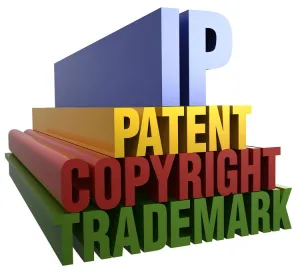Jeff Hay and Ted Claypoole of Womble Carlyle discuss whether contracts that are currently written to include the U.K. with the EU will be enforceable or will need to be rewritten and whether European versus English law will have jurisdiction in this latest addition to our multi-part video series discussing the U.K.’s decision to leave the EU and the potential challenges and opportunities Brexit poses for businesses on either side of the Atlantic.
Ted: But one of the bigger issues from our side is contracting. If we’re doing licensing, patent licensing, trademark licensing, throughout the EU and that’s the way we’ve written it, is you have a license to use this in the EU and it’s a 10 year license or a 15-year license, well a couple years from now, that means that UK is not within that license. So some of these contracts are going to have to be rewritten or rethought because of the way they’re focused right now and because a lot of us who write those contract may well have used the EU as a trigger point.
Jeff: Ted, do you think that contract means that the EU when it was written or does it mean the EU, I mean doesn’t it depend and can someone argue that it’s not enforceable anymore.
Ted: Oh, absolutely, absolutely and so that’s really the issue. I mean is it a good argument, probably not that the whole thing is not enforceable anymore. However, we’ve got lots of people who want to get out of their contracts that might find it an adequate argument to throw that into the mix. But then you have the question, broader question, of is this, did you get the benefit of your bargain when the UK is not in the EU anymore.
Jeff: Jonathan, let’s throw this to one of you over there of, what’s your view on the judicial issue of recognition of judgments from the English courts in Europe and how that’s going to get resolved and while we’re out it, I mean UK law is used in contracts all over the world because it’s such an established body of law, do you see that changing as a result of Brexit or not?
Doug: I can jump in and sort of pick that one up. In the principles in regards to the supremacy of European law is so the European courts is its own interpretation of European law. So what will end up happening is that if you’ve got a point of European law that is unclear, then it can be referred to the European courts who then will pine on what that provision might mean. Then it does to the number of state courts so they can seek to implement that. So that’s where you sort of have that element of it. In terms of what this might mean post-Brexit in terms of recognition of European case law, I mean I suspect there will some time for us to potentially divert. There seems to be every interest of the ____ want to continue with what is known but it’s entirely plausible that going forward, the UK may well take a different tax on these sorts of issues because it will be _______________ will no longer be subject but potentially to, well it wont’ be subject certainly to the European Treaty but there will a lot of legislation that will in place that will have implemented European rules and unless the UK then decides to take a slightly different path, I think I suspected probably in terms of interpretation they may still look towards the European decisions on those sorts of points so then to decide what that might potentially mean. Now, with regards to the sort of ongoing sort of relevance of English law, you’re absolutely right, Jeff, that I mean the, in terms of sort of choice of jurisdiction, choice of law, it not only remains an issue with regards to companies operating within the European Union but as we mentioned earlier, also another jurisdiction that we’ll use a European or English rather jurisdiction clauses to, which still refer to English law continuing to be relevant for the purposes of contracts.
View Part 1 - Brexit: Overview and Reactions
View Part 2 - Brexit: Currency Issues and Inflation
View Part 3 - Brexit: Outlook for the EU and Impact on the U.S.
View Part 4 - Brexit: U.S. Opportunity in the U.K.
View Part 5 - Brexit: The Impact on Mergers and Acquisitions
View Part 6 - Brexit: What the U.K.’s Exit Might Look Like
View Part 7 - Brexit’s Potential Impact on Corporate Passporting and the Banking Industry
View Part 8 - Brexit’s Potential Impact on Corporate Passporting and the Banking Industry Pt 2.
View Part 9 - Brexit: Why the Fintech Industry Should Be Watching Closely
View Part 10 - Brexit: A Brexit/Corporate Tax Mini Primer
View Part 11 - Brexit: Trademark Law and What to Watch For




 />i
/>i

